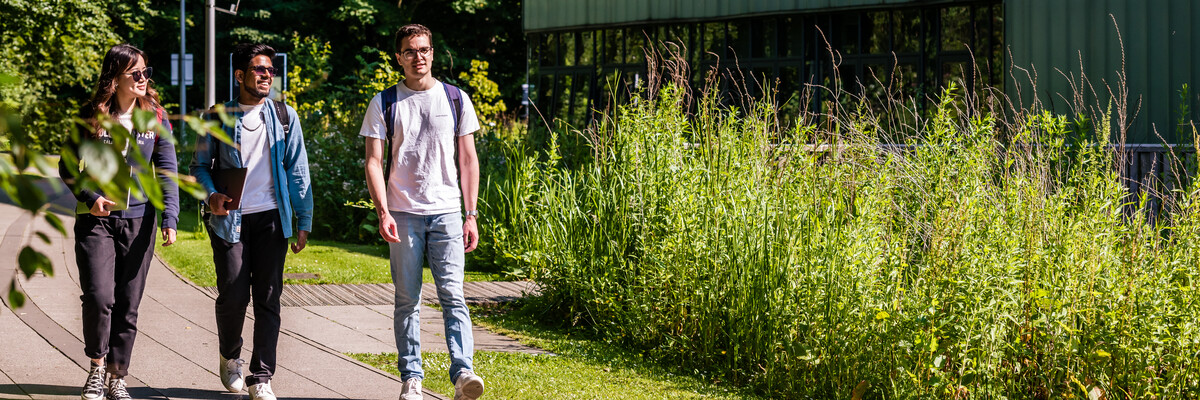Research
The first step in the process of going to university is research. There are so many universities and courses available to prospective students that beginning this research can feel quite overwhelming. Narrowing down the options available can be a time consuming process so it is best to begin researching early.
You can be a big help in assisting and supporting prospective students in this research. Some valuable ways you can help your student include:
- Visiting UCAS/UK University Search fairs. These typically start in the March of the year before entry, and attending one of these is a great way to speak to representatives from several universities, attend seminars, ask questions, and collect prospectuses.
- Booking onto university Open Days. Most universities hold their open days between May and October. You can attend as a family if you wish and speak to current students, meet lecturers from potential departments and tour the facilities, as well as visiting accommodation. If you are attending a campus Open Day make sure to take some time to visit the local area!
- For applicants from outside of the UK, there are many in-country events and alums who would be happy to discuss their undergraduate experiences. We also have a network of agents and representatives to support your student through the application process. Find out more informationinternational students. Alternatively, our Virtual tour provides a great way to get a feel for the University.
UCAS application
The next step is for the student to prepare and send off their UCAS application. They will have five spaces to fill on their application (this can be a mixture of different universities and courses) and they will also have to complete a personal statement. UCAS has a website with helpful information to guide you through the year. This contains advice on how to support a student through filling out the application process and how to help them write their personal statement.
UCAS applications open in September each year, and the initial deadline for most courses is in January. However, Medicine, Dentistry, Veterinary, and Oxbridge applications close in October.
Your student’s school or college will have clear deadlines to support the UCAS application process. These internal deadlines can vary considerably between schools and colleges so it is useful to be aware of when these dates may be.
You can view the complete list of undergraduate UCAS key dates.
You may find it useful to visit our Lancaster specific webpages. Here you can find specific information about applying for undergraduate study at Lancaster, as well as details on what happens after your student has submitted their application.
Student finance application
Applying for student finance can be one of the most daunting parts of the process for prospective students and is often the point at which they require the most support from you. Applications are made through the government Student Finance website.
UK/EU Student Finance applications should be submitted by the end of May to guarantee payment at the start of the first term. If your student is applying for a student loan based on household income, you may need to give Student Finance information about your income.
This information is then used to help calculate the amount of Maintenance Loan your student is eligible for. It is also shared with universities to allow consideration for additional financial support, such as our Lancaster Bursary.
You can find out everything you need to know about the information you will need to provide and all other details of the process here:
Responding to offers
Some universities host Offer Holder Events which students can attend after receiving an offer from a university. These differ to Open Days as they are often focused more closely on your student's department. They can offer another opportunity to meet current students and academics and to ask any questions that might influence the decision of which university the student wants to place as their firm or insurance choice.
After receiving an offer from Lancaster University, students will be invited to attend an Offer Holder Event to meet their department and learn more about the course they have applied for. These typically run between February and April.
Regarding receiving offers from universities, each university will work at different timescales. At Lancaster, our Admissions Team aims for decisions to be made within three weeks of receiving the application. However, during particularly busy periods and when their are other factors in the decision-making process (e.g. an interview or portfolio assessment) there may be a longer wait to hear back from us. Please also remember that applications submitted just before holiday periods (e.g. Christmas) will take longer to process.
For some subjects including Medicine and Surgery, Physics, Architecture, Social Work and MEng degrees students may also be invited for an interview. One way that you can offer them support during this time is to offer to practice interview techniques and possible questions with them in advance.
Once your student has received all their offers, it’s up to them to make their decision on which universities to place as their firm and insurance places and which to decline. Their firm choice should be the university and course they would most like to attend and may have slightly higher entry requirements. Their insurance choice should be their second choice university or course and should be one they would still be happy to attend if they do not get the required grades for their firm choice. Often the insurance choice will have slightly lower advertised entry requirements but this is not a requirement. Students will then have to reject any other offers they have received.
This can be a stressful time for students and we encourage all our applicants to take the time to make the right choice for them rather than rushing into a quick acceptance. During this time students may seek your advice on the offers they receive and ask for your opinion on their options.
Results day and getting ready!
Once the student has made their decision on which universities and courses to place as their firm and insurance choices they begin the final stage of preparation. During this period they will typically be focusing on their academic studies through a combination of revision, exams and remaining coursework. This can be a stressful time for students and it is important to offer them the support they need, whether this be helping them with their revision or encouraging them to take breaks when needed.
If a student has a change of heart, and would like to be considered for an alternative course, we’re happy to consider this provided they meet the requirements and space remains available on the course. They’ll need to contact our Admissions team to request this.
If they are planning to move away for university then this is point at which they also have the exciting decision of what accommodation they would like to pick. At Lancaster, if a student has made us their firm or insurance choice we will contact them with options in the summer and invite them to choose their accommodation and college. Other universities will operate on a different timeline so it is important to check how to process operates at each institution.
Then comes the scary yet exciting time of Results day! If a student meets the conditions of their firm choice, they will have their place confirmed via UCAS. Sometimes a university needs additional information from the student (for example, if you have to confirm details of the transcript) and we will be in contact directly. If the university does not require any further information the status of their application will be amended from conditional to unconditional, and pre-arrival information will follow.
Sometimes a student will not meet the grades for their firm choice but will meet those of their insurance. In that case, their application will change to their insurance institution and be amended to unconditional and again, pre-arrival information will follow.
If they are not accepted by both their firm and insurance choices, they will enter UCAS Clearing. Clearing is an opportunity for students without a place at university to find one as universities seek to fill any remaining course spaces. Find out more information about Clearing at Lancaster and the entry criteria.
Once a student has their place confirmed at university the final stage is to help them prepare for their university transition. If they are moving away to university, it is at this point that they will have to begin shopping for their essential items. You may find it useful to find a packing list online for inspiration. This period can also be a good time for your student to practice any skills they might need to develop for university such as cooking or doing their own washing.
Your student will be sent all of the information they need ahead of time. They will arrive at Lancaster for Welcome Week which is a time for them to settle in, meet people and get to know the campus ahead of starting their studies. Find out about our Term dates.










